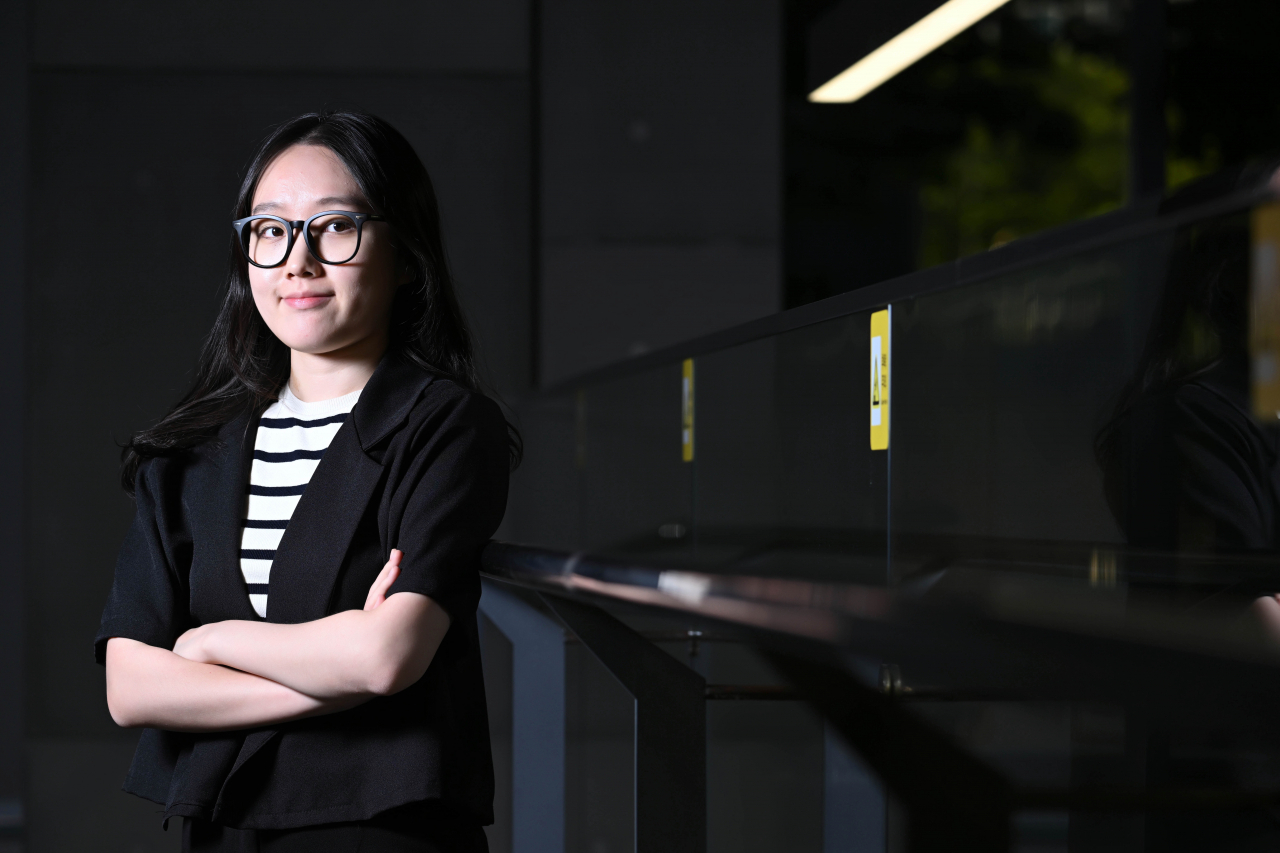Startups
[Herald Interview] Sleep tech startup Munice seeks bigger footing in US
 |
Kwon Seo-hyun, CEO and founder of Munice, poses for a photo at Dcamp's Front1 co-working space in Mapo, western Seoul, on Sept. 24. (Im Se-jun/The Korea Herald) |
In a world where sleep disorders reportedly affect millions, South Korean startup Munice is offering a unique and science-based solution. Their app, Nightly, specializes in using a specific type of rhythmic sound frequency, called monaural beats, designed to promote relaxation and deep sleep.
According to CEO Kwon Seo-hyun, 26, Nightly helps users fall asleep faster and experience deeper rest through brainwave entrainment. The app encourages electrical oscillations of the brain to synchronize with its patterned sounds, guiding users into a state of calm and enhancing their sleep quality.
“By listening to specific sounds, the brain can be trained to follow certain rhythms, calming neural activity and encouraging deeper, more restful sleep,” Kwon told The Korea Herald in a recent interview at Front1 in Mapo, western Seoul. Front1 is a co-working space operated by Dcamp, one of the nation's largest startup accelerators set up by 19 financial organizations in 2012.
Kwon’s journey into the world of sleep tech began while she was a student of economics and computer science at Yonsei University. “Initially, it was for personal reasons,” she explained. “I had severe insomnia and was prescribed sleeping pills, but I never felt fully refreshed the next day. Then, I started thinking there must be a smarter way to address sleep issues, which led me to begin developing the technology.”
After launching her first product through a crowdfunding campaign during university, she had the opportunity to meet and interview around 120 people struggling with sleep problems – a moment, she said, that motivated her to take the project to the next level. "Many of them told me how our service had changed their lives and how grateful they were. That’s when I realized our technology could truly make a difference."
Using artificial intelligence-based customization, Nightly tailors each user’s experience by analyzing their sleep patterns. The app is also supported by medical professionals, ensuring that its techniques are both scientifically sound and clinically validated, Kwon added.
Since its launch in April 2022, Nightly has made significant progress in the domestic market. Last year, it ranked as the top-grossing app in the health and fitness category on App Store. The monthly subscription fee is 7,700 won ($5.78) in Korea and $6 in the US.
This year, Kwon is focused on expanding further into the US market. Nightly has recently enhanced the user experience to better align with US consumer preferences. The company is prioritizing localization to ensure the app resonates with local cultures, which is a key part of their strategy. To achieve this, Munice is actively recruiting talented native English-speaking professionals – both remote full-time employees and interns – to review and refine the app’s content, including language, images and word choice, ensuring it feels natural to US and international users.
Beyond improving the usability of their app, Munice is also focusing on social media, particularly targeting teenagers and younger people, who enjoy sharing their daily logs online and are easily influenced by these platforms. Recently, Munice launched an ambassador program in collaboration with Princeton University, aiming to introduce Nightly to US students, to replicate the viral success it enjoyed among students in Korea.
Kwon expressed her long-term vision of expanding beyond the US and Korean markets. “Our goal is to build a world where everyone can enjoy a good night’s sleep. With Nightly, we will continue striving to make quality sleep accessible to all.”
In 2022 and 2023, Munice secured over $900,000 in funding from domestic and global investors, including Translink Investment, Blue Point Partners, DHP Digital Healthcare, HealthPartners and The Ventures.
By Hwang Joo-young (flylikekite@heraldcorp.com)








